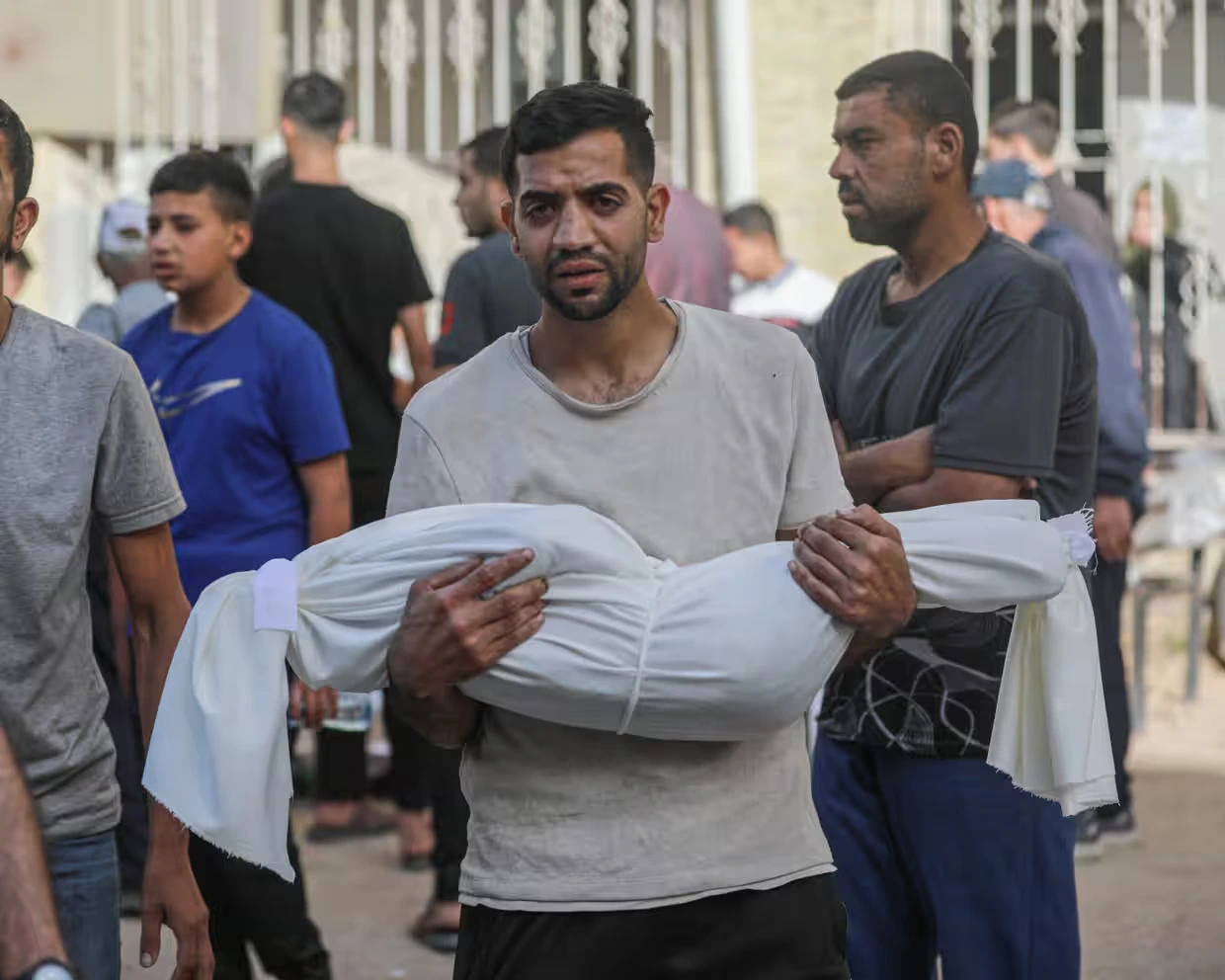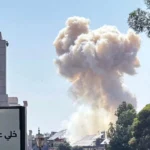According to The Guardian, the recent Israeli airstrikes on schools in Gaza that served as shelters for displaced civilians were not accidental. The newspaper asserts that these bombings are part of a deliberate strategy, with Israeli forces striking civilian infrastructure despite the known presence of large numbers of noncombatants. In recent months, at least six schools have been hit in such operations, resulting in over 120 civilian deaths.
The situation has worsened due to what military sources describe as a loosening of internal restrictions within the Israel Defense Forces (IDF) on operations targeting suspected Hamas militants in areas populated by civilians. This shift has led to an escalation in airstrikes on schools and other public institutions.
Latest Strikes and New Targets
Another airstrike hit a school in the central Gaza town of Deir al-Balah on Monday, reportedly killing four people. Videos posted to social media show the aftermath of the bombing at what is believed to be the al-Aishiya school, which had been serving as a temporary shelter for displaced families.
The IDF acknowledged the strike but did not name the school or provide evidence, stating only that it had targeted a “site used by terrorists” in the area and had taken measures to reduce harm to civilians.
However, military sources confirmed to The Guardian that al-Aishiya was part of a list of schools recently designated by the IDF as legitimate targets. In addition, four more school buildings have been identified as potential future targets:
- Halawa
- al-Rafaa’i
- Nusiba
- Halima Sa’dia
All four are located in or near Jabaliya, in the northern part of Gaza. It remains unclear whether these schools are currently being used as shelters. Two of them were previously damaged during earlier phases of the conflict.
Scale of Destruction and UN Assessments
According to the United Nations, about 95% of Gaza’s schools have sustained some degree of structural damage, and around 400 schools have been classified as having suffered a direct hit. The education system in the territory is on the verge of total collapse.
One of the deadliest incidents occurred on May 25, when an Israeli airstrike hit the Fahmi al-Jarjawi school, killing at least 54 people as they slept, according to local officials. The BBC reported that burned bodies, including those of children, were recovered from classrooms engulfed in flames.
The IDF later claimed that the strike targeted “key terrorists” operating from a Hamas and Islamic Jihad command center that had allegedly been embedded in the former school site.
“Heavy Centers” and Approval of Strikes Despite Civilian Presence
According to three Israeli military sources cited by The Guardian, schools, hospitals, and municipal buildings have recently been classified as ‘heavy centers’ — meaning that the IDF believes they are being used by Hamas militants in parallel with civilian use.
The sources confirmed that airstrikes on such facilities are now authorized even when only low-ranking militants are present, despite full knowledge that civilians may be killed as a result.
Reaction from International Organizations
Juliette Touma, Director of Communications for UNRWA (the UN agency for Palestinian refugees), condemned these attacks:
“Schools must always be protected and must never be hit or used for military or fighting purposes. Very sadly, schools have been struck over and over for the past 20 months. It’s a grave violation of international law and of children’s rights.”
Israel’s Official Position
In response to inquiries, an IDF spokesperson stated that the army operates “exclusively on the grounds of military necessity and in strict accordance with international law.” The spokesperson further accused Hamas of illegally using schools for military purposes:
“Hamas exploits schools by building military networks beneath and within them, launching attacks toward IDF forces from these locations, and imprisoning hostages inside.”
According to The Guardian, the Israeli military appears to be pursuing a strategy that includes targeting locations known to house civilians, such as schools, when it suspects Hamas activity. Despite official statements about minimizing civilian harm, the practical consequences of these strikes, as reported by witnesses and humanitarian organizations, point to the systematic destruction of Gaza’s civil infrastructure.
This article was prepared based on materials published by The Guardian. The author does not claim authorship of the original text but presents their interpretation of the content for informational purposes.
The original article can be found at the following link: The Guardian.
All rights to the original text belong to The Guardian.


















